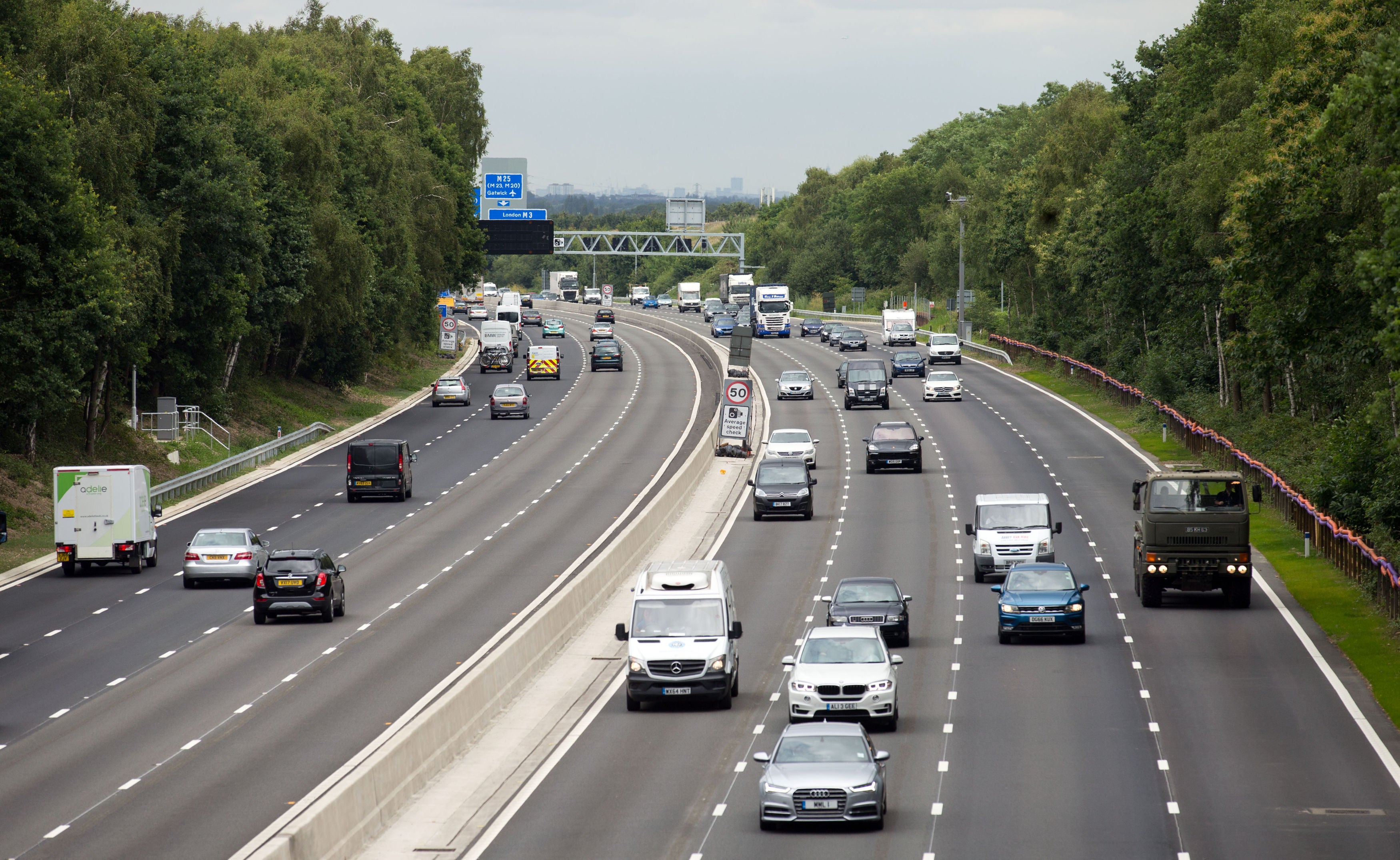Nine more ‘smart’ motorways without permanent hard shoulders to be built despite 44 deaths in five years
One campaigner brands move ‘absolutely unacceptable’

Nine more “smart” motorways are to be built with a combined distance of 138 miles, despite fears from campaigners about their safety.
In the last five years, 44 people have died on these motorways, which do not have permanent hard shoulders, with the government issuing an action plan earlier this year to make them safer.
Transport secretary Grant Shapps said he was “greatly concerned” by some of these fatalities when he published a report outlining the recommendations in March.
As part of the measures, Mr Shapps’ department said that emergency stopping points on these roads should ideally be placed every three-quarters of a mile but should not be more than a mile apart - down from the current maximum spacing of a mile and a half.
Despite Mr Shapps’ words, nine projects have been given the go-ahead with lay-bys positioned at distances of between 1.04 and 1.39 miles, according to a Sunday Times report. These include a 32-mile stretch on the M3 and a 23-mile section on the M1.
Meera Naran, 36, whose son, Dev, was killed on a smart motorway in 2018, told the weekly paper that she found the new proposals “absolutely unacceptable”.
In January, Sarah Champion, the Labour MP for Rotherham, told ministers during a Commons debate that they should “take the opportunity of a recently announced review into smart motorways to change course and prevent further loss of life”.
Ms Champion cited the death of one of her constituents, Jason Mercer, who was hit by a lorry on the M1, as an example of the dangers presented by this type of road.
However, Mr Shapps said in the March report that smart motorways had lower fatal casualty rates than normal ones, referencing data collected between 2015 and 2018.
The Independent has contacted the Department for Transport for further comment.
Join our commenting forum
Join thought-provoking conversations, follow other Independent readers and see their replies
Comments
Bookmark popover
Removed from bookmarks